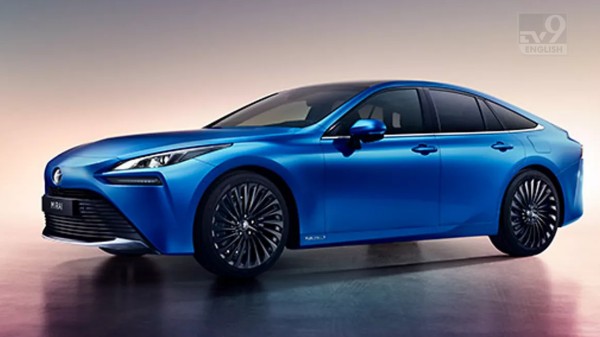

By signing in or creating an account, you agree with Associated Broadcasting Company's Terms & Conditions and Privacy Policy.


By signing in or creating an account, you agree with Associated Broadcasting Company's Terms & Conditions and Privacy Policy.

New Delhi: While carmakers around the world has been investing strongly in battery-electric vehicles, there are quite a few who are still experimenting with hydrogen as an alternative source of energy. Toyota has been much more silent on the electric market, and for the last 30 years, they have had a connection with hydrogen, and the company still firmly believes that it could be the big break the motor world is looking for.
While talking to an Australian media outlet, Car Expert, Sean Hanley, vice president of sales, marketing and franchise operations with Toyota Australia, has said that hydrogen powertrains might be able to replace diesel in the upcoming decade. Hanley noted that diesel was unlikely to be halted by the next decade. However, he felt that in the long term, hydrogen will replace diesel.
He admitted that diesel isn’t really the fuel to sustain in the future and petrol can do much more than diesel.
Hanley has said that while hydrogen isn’t being favoured at present, eventually, the technology might just improve enough to replace the diesel powertrain. Hanley believes that hydrogen infrastructure, at least in Australia, needs to improve and the right investment might just lead to a surge in the adoption rate.
As is well known, Hydrogen isn’t something new, and Toyota had in fact started making hydrogen fuel-cell vehicles back in the 1990s. In fact, back in 1807, de Rivaz's engine was an internal combustion engine that used a mixture of hydrogen and oxygen. In the light of fuel-powered engines powering through, hydrogen wasn’t that favoured in the 20th century.
In 1966, General Motors revealed the Electrovan, which was the first hydrogen fuel-cell vehicle. The project took a couple of years and 200 engineers. It matched with NASA’s adoption of fuel-cell tech for the Apollo space program.

In 2014, Toyota brought the mass-produced hydrogen fuel-cell car, the Mirai, although it never made a crack at numbers. Motor Journalist James May owned one and felt it wasn’t very exciting, but it was one of his favourite cars. However, in UK, the Hydrogen infrastructure never really grew well. Even in the United States, the investment is poor and is unlikely to get better very soon.
Despite the low interest, car makers are interested in investing in research and technology. BMW unveiled the next-generation fuel-cell system this month and are likely to put it in production in 2028, although there isn’t much known as to what car it will power. Stellantis, though, stands against it as it is still a “niche segment”. There’s a lot to be awaited for in terms of Hydrogen technology, and the world’s biggest carmaker is a glint of light in it.








